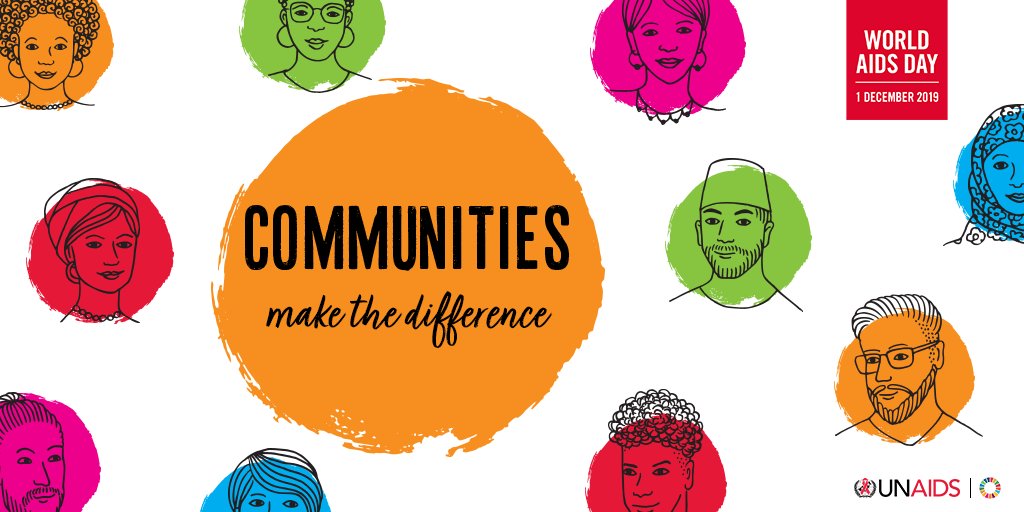World AIDS Day
World AIDS Day, Dec. 1, is a time to remember, to educate and to decrease stigma around HIV/AIDS. The theme of this year's World AIDS Day is "Communities Make the Difference," recognizing the essential role that communities have played supporting people living with HIV and advocating for better access to prevention and treatment.

More than 1.1 million people are living with HIV in the U.S. In 2017, there were more than 38,000 people newly diagnosed with HIV in the U.S., and that number has remained steady in recent years. An estimated 15% of people with HIV do not know they have it. HIV infection cannot be cured, but it can be prevented, and it can be treated with a combination of medications called antiretroviral therapy.
Gay and bisexual men are the most affected by HIV, accounting for 66% of all HIV diagnoses in 2017. However, nearly one in four people (24%) diagnosed with HIV are heterosexual.
HIV disproportionately affects people of color. African Americans accounted for 43% of HIV diagnoses (13% of the population) and Hispanics/Latinos accounted for 26% of HIV diagnoses (18% of the population). By age group, people 25 to 34 years had the most new HIV diagnoses in 2017 and youth and young adults age 13 to 24 had the second most. Young people are more likely to be unaware they have HIV—just over half of people age 13 to 24 who have HIV, do not know they have it, according to the Centers for Disease Control and Prevention.
HIV and Mental Health
For people with HIV, it’s important to take care of both physical health and mental health. People with HIV have increased risk for mental health problems, including anxiety, depression and cognitive problems. Yet mental health issues are often overlooked in HIV interventions and treatment.
The National Institute of Mental Health notes that stresses faced by people living with HIV can contribute to mental health problems, such as having trouble getting services, isolation and loss of social support, managing HIV medicines, or facing the stigma and discrimination associated with HIV/AIDS. Depression is common among people with HIV. A recent review of research around the world found and average of about 30% of people with HIV have moderate to severe depression.
Pre-existing mental health and substance use disorders can complicate HIV-related illness. Having a mental illness can make it more difficult for people to stick with their HIV-medication regimens. HIV is also associated with cognitive problems, such as difficulties concentrating, learning and thinking (called HIV-associated Neurocognitive Disorders or HAND). While many people with HIV are affected by a mild form of HAND, more severe forms are rare, and treatment is available. In addition, some HIV medications can have psychiatric side effects, including symptoms of depression, anxiety and sleep problems.
As HIV/AIDS treatments have improved and it had increasingly become a chronic disorder, the need for mental health care and services is rising. Unfortunately, both HIV and mental illness still carry a significant stigma and discrimination. The focus of attention on World AIDS Day can help break down the stigma.
More information from APA: Factsheets on HIV and Mental Health.
References
- United Nations/UNAIDS, World AIDS DAY 2019, https://www.unaids.org/en/resources/campaigns/WAD_2019
- Rezaei S, Ahmadi S, Rahmati J, et al. Global prevalence of depression in HIV/AIDS: a systematic review and meta-analysis. BMJ Supportive & Palliative Care Published Online First: 19 September 2019. doi: 10.1136/bmjspcare-2019-001952
- National Institute of Mental Health. HIV/AIDS and Mental Health. www.nimh.nih.gov/health/topcs/hiv-aids.
